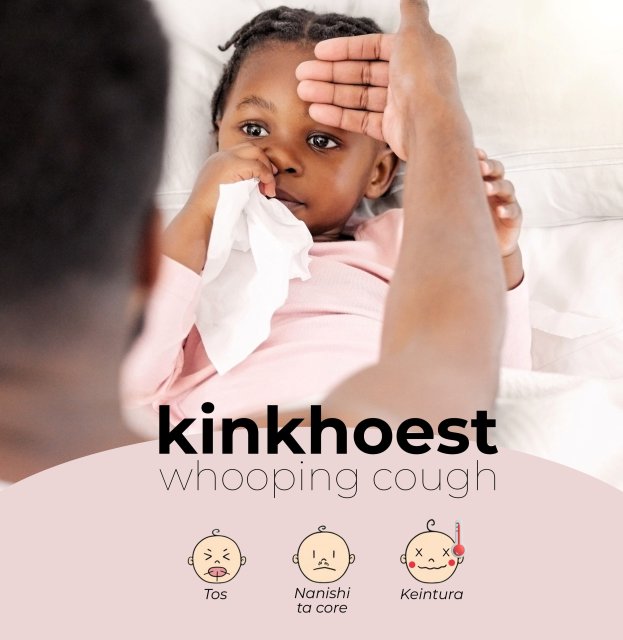Cases of Whooping Cough in Aruba
ORANJESTAD - Since last year, various countries in Europe and the Americas have raised alarms about the drastic increase in cases of whooping cough, also known as “Kinkhoest.” As a country that receives visitors from these areas, Aruba has also recently noted an increase in the number of cases.
From 2024 until now, six positive cases were registered in Aruba, including two babies hospitalized and one in critical condition.
Whooping cough is a respiratory illness caused by a bacterium. An infected person can spread this bacteria and thus infect others through coughing or sneezing. The initial symptoms of whooping cough start like a regular cold, including a runny nose, mild coughing, fever, and sneezing. After these initial symptoms, the illness progresses to severe and persistent coughing, vomiting after coughing, and exhaustion.
Adults, teens, and children vaccinated against the whooping cough bacteria often experience it as a mild cold. However, for babies under 2 months who have not yet received their first DKTP vaccine, unvaccinated or partially vaccinated children, and frail elderly individuals, whooping cough can be severe and even fatal. Due to the intense coughing, babies, children, or adults may vomit, choke, lose consciousness, or even die.
In December 2024, Aruba recorded three cases of whooping cough, two of which involved babies under one year of age. This figure is generally the annual average of whooping cough cases reported in Aruba. In 2024, 6 confirmed cases of whooping cough have been registered.
The Department of Public Health (DVG) alerts the community, particularly parents with young babies who have not yet received their first vaccine, to avoid exposing their babies to too many people or individuals with cold symptoms. DVG advises individuals with respiratory symptoms to protect others by wearing a mask. Vulnerable elderly individuals should also be mindful and practice frequent hand hygiene to avoid spreading or contracting the bacterium. The recommendation is to wash hands before eating and always before touching or caring for a baby. The advice to pregnant women is to get vaccinated against whooping cough between 27 and 36th week of pregnancy, providing their baby with some immunity to the bacterium at birth.
DVG will inform the community of the developments of these cases in Aruba in the coming days.
For more information, like the Facebook page of Directie Volksgezondheid DVG Aruba, follow DVG on Instagram at directie_volksgezondheid_aruba, visit www.dvg.aw, call 5224200, or email servicio@dvg.aw.

